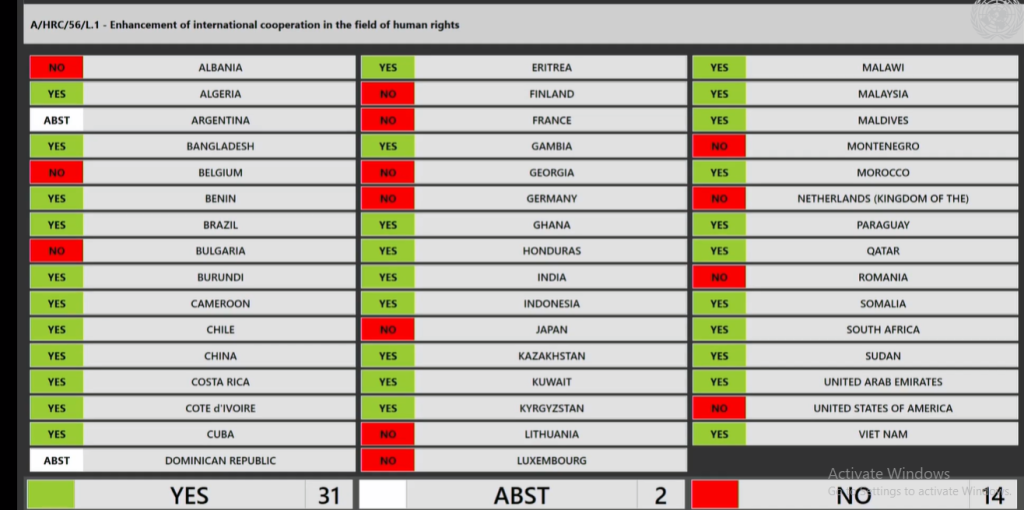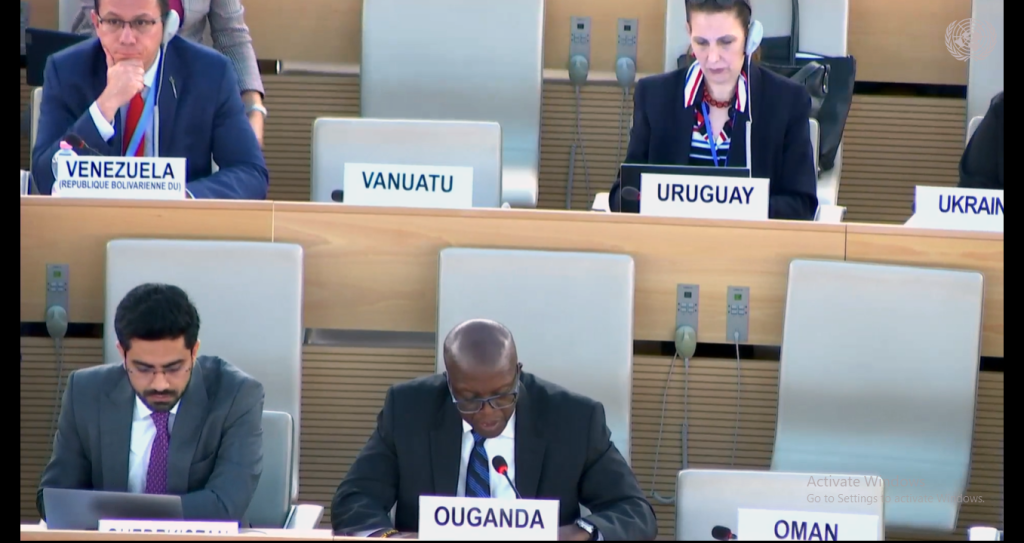On July 10th 2024, the UN Human Rights Council adopted a resolution entitled: Enhancing International Cooperation in the field of Human Rights. The resolution was presented to the Council by Uganda on behalf of the Non-Aligned Movement, which followed weeks of informal and formal consultations held with delegations.
The EU called for a vote and said its members in the Council would vote against the draft. The text was put to a vote and the Council approved the draft resolution with 31 votes in favor to 13 against, with 02 abstentions

In introducing the resolution, Deputy Permanent Representative of Uganda to the UN, Amb. Arthur Kafeero stressed that its aim was to reaffirm the collective commitment to promoting international cooperation among Members States of the United Nations in the field of human rights. “Uganda recalls that the COVID-19 Pandemic that impacted on many, demonstrated that no State can efficiently thrive without cooperation with others,” he said, adding that the NAM resolution “reaffirms the duty of States to cooperate with one another in accordance with the Charter of the United Nations and dialogue among and within cultures and civilizations, facilitates the promotion of a culture of tolerance and respect for diversity”. Amb. Kafeero further said that the resolution implored the High Commissioner to prioritize regional seminars on the contribution of North-South, South-South and triangular cooperation to the enjoyment of all human rights, including the right to development.
Speaking in explanation of vote before the vote, the representative of Belgium on behalf of the EU, which voted against the resolution, thanked Uganda for coordinating the negotiations of the draft resolution. He said that international cooperation was an essential element for EU external relations, and it was committed to strong multilateral cooperation. However, he expressed concerns about use of language in the text not endorsed by UN membership such as New International Economic Order (NIEO) and use of language on terrorism that, in his view, was not giving sufficient attention to human rights, respect for international law and international refugee law, a framework within which he argued the fight against terrorism should take place. Belgium also disagreed with language on Universal Coercive Measures (UCMs) and questioned the added value of regional seminars given the current liquidity crisis in the UN. He concluded by saying that the EU is ready to have dialogue with NAM in the future to have consensual language and approach that it deserves.

The representative of the United States who also voted against the resolution, said her country remains committed to protection of human rights globally including in international fora and regretted reference to controversial language like international declarations which the Council has not endorsed. The US, she added, objected to longstanding use of language such as on UCMs which does not have an internationally agreed definition and it was not appropriate to suggest states have responsibility of human rights obligations of other States. The US Representative said her country was committed to achieving the SDGs and the need to achieve such progress but its position on language on Right to Development (RTD) is well known. She said the US would vote against the draft resolution and encouraged other Member States to do likewise.
The representative of Argentina, commended Uganda for the consultative approach with member states and supported need for international cooperation. However, despite being a member of the NAM, his delegation felt concerned about using terms that did not have UN consensus such as NIEO and UCMs being used, which they felt, could be a justification for abuse of human rights. Argentina abstained.























